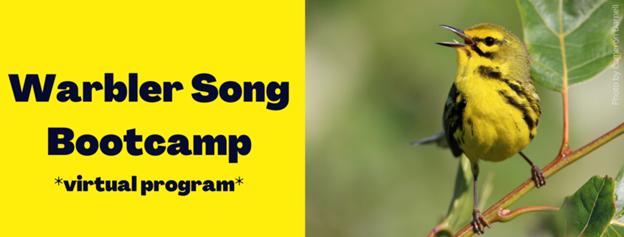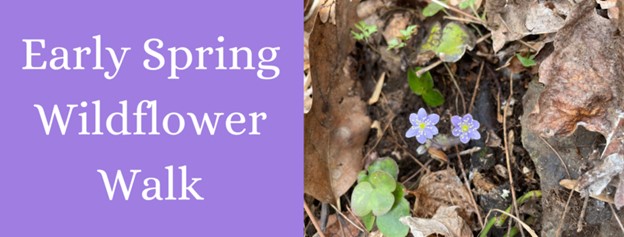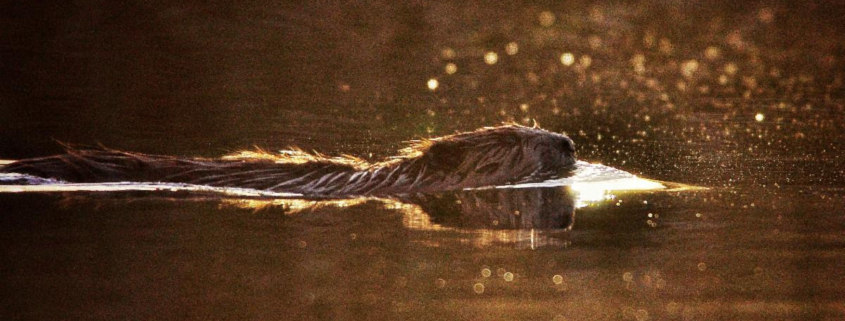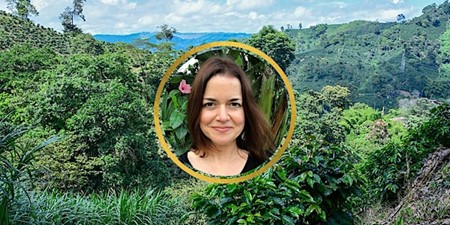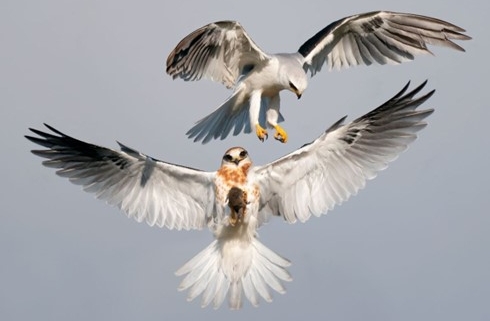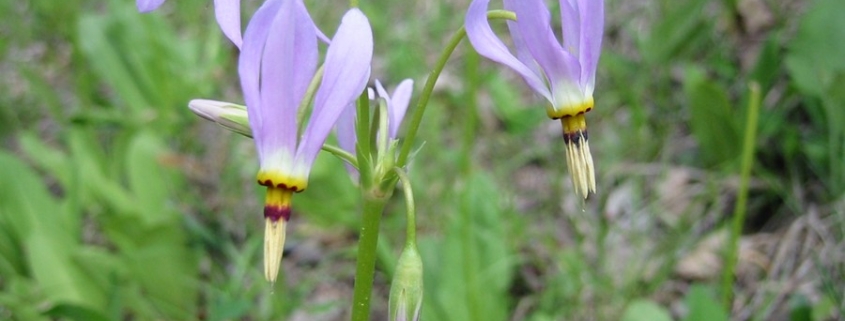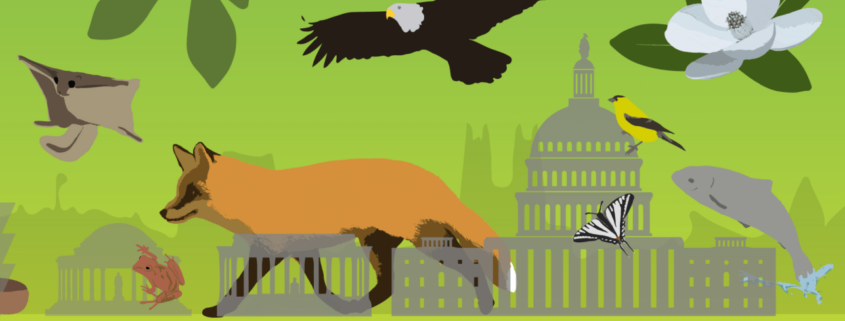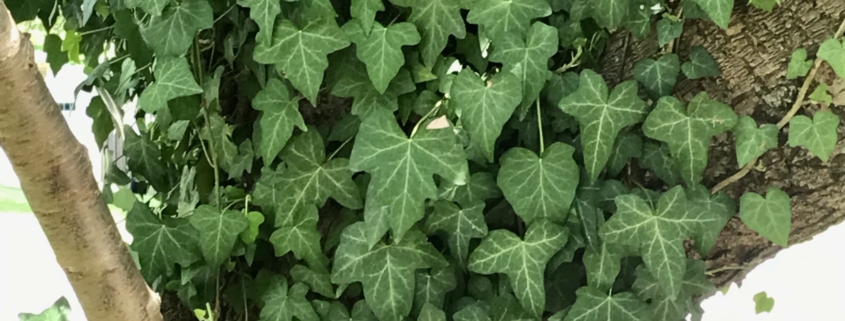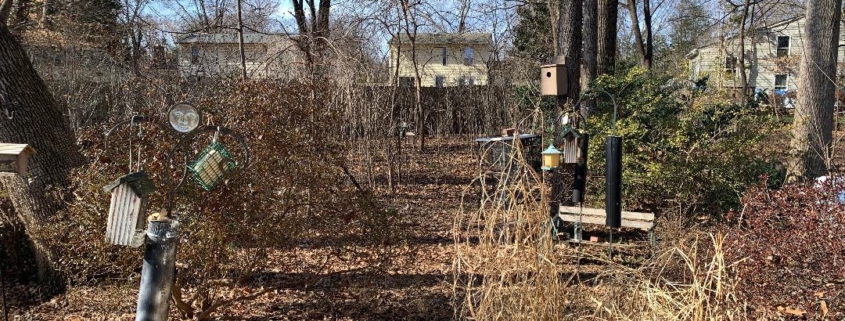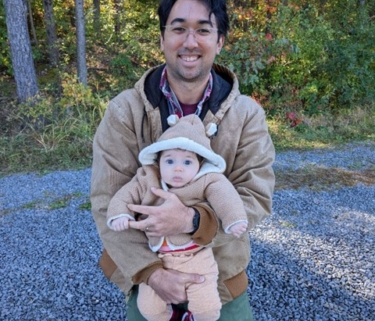Kita’s backyard
Article and photos by FMN Janet Quinn
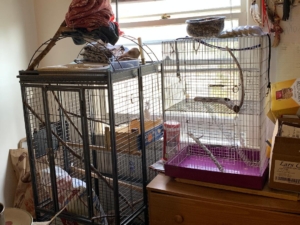
Wildlife habitat indoors
Kristina (Kita) Andersonhas high hopes as a wildlife rehabilitator. Her home, on one-and-a-half acres in Burke, is a sanctuary oasis in the suburbs. The Virginia Department of Wildlife Resources (DWR) has permitted her to work with a sponsor and care for migratory birds, squirrels and reptiles and RVS (rabies vector species.). In addition, she has a full migratory bird permit (until 2027) with the federal Department of Interior, Fish and Wildlife Service. She hopes to some day create a run to treat foxes with mange and has habitat cages in a spare bedroom and in her backyard.
The biggest expense for bird rehabbers is mealworms, especially in “baby season”,
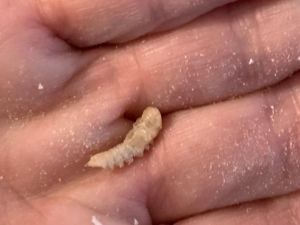
Mealworm close up
which runs from March to August. Rehabbers pay for their own food and equipment. Kita has an electric heater surrounded by plastic bins of mealworms in various stages. The beetles lay eggs, the eggs hatch into larvae, which need moisture, humidity, and food, then transform into pupae, which become beetles. This cycle requires daily maintenance. Kita uses the mealworms for the wildlife she cares for, which need them live, and gives them to other rehabbers as well.
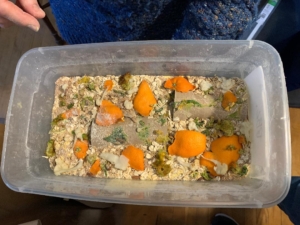
Mealworm habitat
If you are interested in raising mealworms for animals recovering from trauma, contact Kita at [email protected] and include Mealworms in the subject line. She will provide you with a starter colony and “as much coaching as you can stand.”
The DWR permitting process includes a category for Care Provider, who “may provide direct care for, and may come in direct contact with, wildlife at the facility” of a (higher level permittee) when direct supervision is not available at that facility. For example, a Category II goes on vacation and needs someone to provide care to the animals at their facility. The Category IV Care Provider would be qualified to provide this assistance.
Kita has a full-time job as a journalist and some of the animals she rehabs require care every few hours. For example, she would like to care for ducks and goslings, but they cannot be left alone. Only three rehabbers are permitted to care for these migratory birds in 2023. Without Care Providers, Kita will not be able to take these animals. Last year there were more than 50-60 migratory birds rehabilitated across four or five rehabbers in Virginia.
Squirrels can arrive to a rehabber as “pinkies” (furless babies) or “juvies,” which are two to three weeks old. Kita won’t do “pinkies” this year but would like to accept “juvies” who still need hand feeding every four hours and constant warmth. Kita has lent her small incubator to another rehabber who will be doing the “pinkies.” They will then pass them to her when they are a little stronger and start to have some fur.
You can get started in either migratory birds or squirrels! Interested? Contact Kita at [email protected] and include Rehabber in the subject line. She will walk you through obtaining a Care Provider permit with DWR.
Fairfax Master Naturalists: Record service hours for either project under Community outreach – S999: DWR service projects — Department of Wildlife Resources (VDWR).
For more information on the work of a Fairfax Master Naturalist Animal Rehabilitator, see our previous article here.


